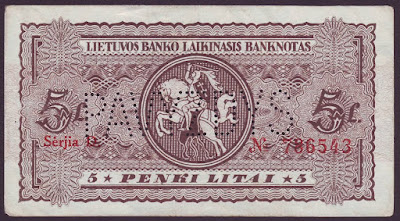Pictures of banknotes and world paper money currency.
Lebanon currency 25 Piastres, 1950.
Lebanon currency 25 Piastres banknote, 1950.
Obverse: Cedar tree at right. Cedar tree is the symbol of Lebanon
Reverse: Lion's Head Water Spout from Temple of Jupiter at Baalbek, Lebanon.
Obverse: Cedar tree at right. Cedar tree is the symbol of Lebanon
Reverse: Lion's Head Water Spout from Temple of Jupiter at Baalbek, Lebanon.
Libanaise 50 piastres bill, 1948.
Lebanon money 50 Piastres banknote, 1948.
Obverse: View of the 6 Remaining Columns from the Temple of Jupiter in Baalbek, Lebanon.
The Temple of Jupiter Baal ("Heliopolitan Zeus") was 290 feet long, 160 feet wide, and surrounded by 54 massive columns each of which were 7 feet in diameter and 70 feet tall. The Great Temple of Jupiter was the largest in the Roman Empire.
Reverse: Temple of Venus at Baalbek.
Obverse: View of the 6 Remaining Columns from the Temple of Jupiter in Baalbek, Lebanon.
The Temple of Jupiter Baal ("Heliopolitan Zeus") was 290 feet long, 160 feet wide, and surrounded by 54 massive columns each of which were 7 feet in diameter and 70 feet tall. The Great Temple of Jupiter was the largest in the Roman Empire.
Reverse: Temple of Venus at Baalbek.
LEBANON money 10 LIVRES banknote, 1961.
Lebanon money 10 Livres banknote, 1961.
Obverse: The ruins of the Roman temple of Bacchus in Baalbek, Lebanon.
Reverse: Shoreline with city in hills.
Obverse: The ruins of the Roman temple of Bacchus in Baalbek, Lebanon.
Reverse: Shoreline with city in hills.
Lebanon currency 10000 Livres
Banque du Liban - The Central Bank of Lebanon - 10000 Livres banknote
Obverse: Panoramic view of the Roman ruins (The Triumphal Arch) at Tyre.
Reverse: City ruins with 5 archaic statues.
Watermark: Ancient circular sculpture with head from the Grand Temple Podium.
Obverse: Panoramic view of the Roman ruins (The Triumphal Arch) at Tyre.
Reverse: City ruins with 5 archaic statues.
Watermark: Ancient circular sculpture with head from the Grand Temple Podium.
Kingdom of Libya currency 1 Libyan pound King Idris banknote of 1952.
 |
| Libyan Pound banknote, with the portrait of King Idris of Libya |
 |
| Currency of Libya - Libyan pound banknote |
Libyan banknotes, Libyan paper money, Libyan bank notes, Libya banknotes, Libya paper money, Libya bank notes
Obverse: Portrait of King Idris I of Libya the first and only king of Libya, reigning from 1951 to 1969, and the Chief of the Senussi Muslim order. While in Turkey for medical treatment, Idris was deposed in a 1969 coup d'etat by army officers led by Muammar Gaddafi.
LITHUANIA currency Litas 5 Litai, 1929.
LITHUANIA currency 5 Litai banknote, 1929 - 1930 Commemorative issue 500th Anniversary of Vytautas the Great (1430-1930).
Obverse: Portrait of Grand Duke of Lithuania - Vytautas the Great, National coat of arms - Vytis (Knight on horseback) at right.
Reverse: Battle of Gruenwald (Battle of Žalgiris).
Watermark: Illegible.
Designer: A. Galdikas.
Printer: Bradbury Wilkinson & Co. England
Obverse: Portrait of Grand Duke of Lithuania - Vytautas the Great, National coat of arms - Vytis (Knight on horseback) at right.
Reverse: Battle of Gruenwald (Battle of Žalgiris).
Watermark: Illegible.
Designer: A. Galdikas.
Printer: Bradbury Wilkinson & Co. England
LITHUANIA currency 10 Litu, 1927.
LITHUANIA currency 10 Litu banknote, 1927 issue.
Obverse: Coat of arms of Lithuania - Vytis ("the Chaser").
Reverse: Farmers tilling the fields.
Watermark: Illegible.
Designer: A. Galdikas.
Printer: Bradbury Wilkinson & Co. England
Obverse: Coat of arms of Lithuania - Vytis ("the Chaser").
Reverse: Farmers tilling the fields.
Watermark: Illegible.
Designer: A. Galdikas.
Printer: Bradbury Wilkinson & Co. England















































